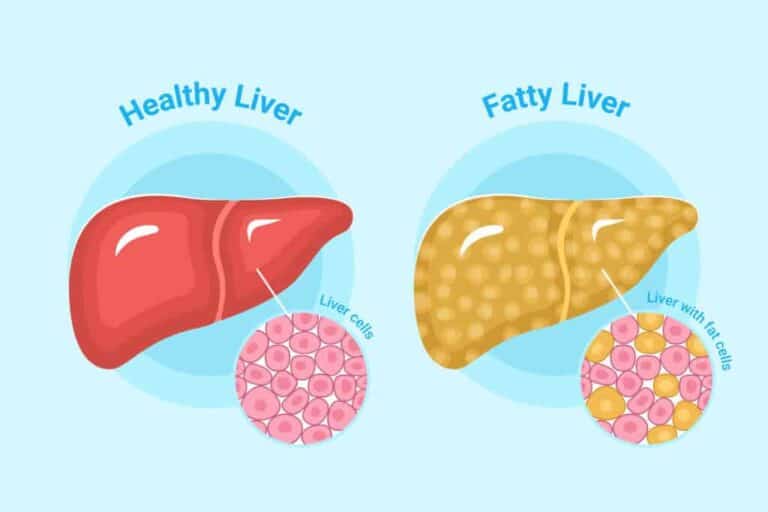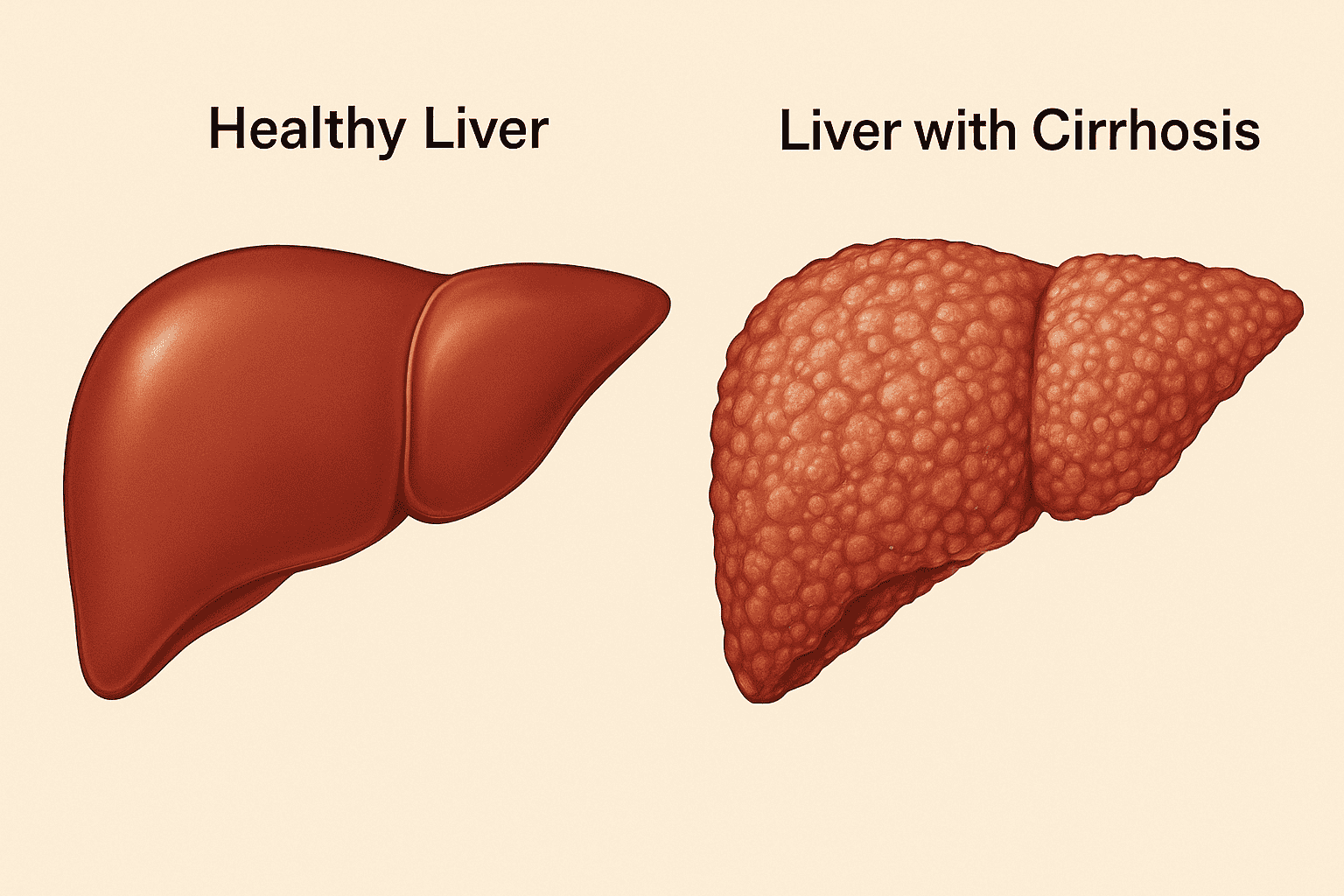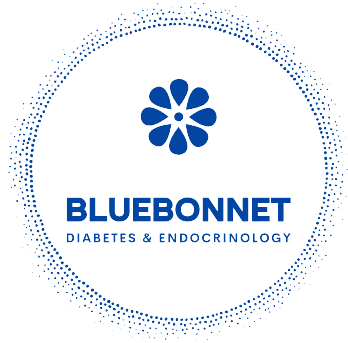Understanding MASH: What It Means for Your Health and the Latest Treatments


You may have heard the term MASH recently, especially if you or someone you know has been told they have “fatty liver.” MASH stands for metabolic dysfunction–associated steatohepatitis. It’s a condition where extra fat in the liver causes irritation and scarring, and it is closely tied to things like weight gain, type 2 diabetes, high cholesterol, and high blood pressure.
How common is MASH?
Fatty liver disease is very common—about 1 in 3 adults worldwide have it. Most people just have extra fat in the liver, but a smaller group go on to develop MASH, where the liver becomes inflamed and starts to scar. In the United States today, an estimated 15 million people are living with MASH, and that number is expected to keep rising in the years ahead.
Why your heart matters as much as your liver
When people think about liver disease, they often worry most about cirrhosis (advanced scarring) or liver cancer. Those are real risks with MASH, especially if the disease isn’t caught early. But here’s something many people don’t realize: the leading cause of death in people with MASH is actually heart disease—things like heart attacks and strokes.
That’s because the same risk factors that hurt the liver—weight, diabetes, high blood pressure, high cholesterol—also strain the heart and blood vessels. In fact, people with MASH are more likely to develop heart disease than those without it.
So if you’ve been told you have MASH, caring for your heart health is just as important as caring for your liver health.

What can happen if MASH progresses?
Not everyone with MASH will get worse, but for some people the liver continues to scar over time. This can lead to:
- Cirrhosis – advanced scarring of the liver that affects how it works.
- Liver cancer (hepatocellular carcinoma) – especially in those who already have cirrhosis.
That’s why it’s important to find MASH early, treat it, and keep an eye on the liver’s health over time.

The most powerful treatment: lifestyle changes
The single most effective way to improve MASH is weight loss through healthier eating, being physically active, and improving sleep and stress management.
- Losing just 5% of your body weight (for example, 10 pounds if you weigh 200) can reduce fat and inflammation in the liver.
- Losing 7–10% or more can even improve scarring.
For some people, weight-loss medications or bariatric surgery may be good options if lifestyle changes alone aren’t enough.
New medicines for MASH
For many years, there were no approved medicines for MASH. That changed recently with two important approvals.
Rezdiffra (resmetirom)
In 2024, the FDA approved Rezdiffra for adults with MASH and moderate liver scarring (not yet cirrhosis). This medication works on liver cells to reduce fat and inflammation and has also been shown to help improve cholesterol levels.
Semaglutide (Wegovy)
In 2025, the FDA approved semaglutide (brand name Wegovy) for adults with MASH and moderate liver scarring. Semaglutide has already been widely used for type 2 diabetes and weight management. It not only helps people lose weight, but also lowers the risk of heart disease—and now we know it helps the liver, too.
Both medicines are meant to be used alongside lifestyle changes, not as a replacement for them. Which one is best for you depends on your overall health, your risk factors, and a conversation with your doctor.
Other treatment options
Even before these new approvals, doctors sometimes used other medicines that can help improve liver and heart health, such as:
- Pioglitazone (used in type 2 diabetes)
- Vitamin E (in selected patients without diabetes)
- Other diabetes and weight-loss medicines, including GLP-1 medications like semaglutide and dual-acting medicines like tirzepatide
While these may still be useful in certain people, Rezdiffra and semaglutide are the first official FDA-approved treatments for MASH.
What you can do if you have MASH
- Know your risks. If you have diabetes, obesity, high cholesterol, or high blood pressure, ask your doctor if you should be checked for fatty liver.
- Protect your heart. Control blood pressure, cholesterol, and blood sugar. Take medicines like statins if your doctor recommends them—they are safe for people with fatty liver.
- Aim for healthy weight loss. Even a small amount can make a big difference for your liver and heart.
- Ask about new treatments. If you have been diagnosed with MASH and moderate liver scarring, you may be a candidate for Rezdiffra or semaglutide.
- Stay on top of follow-up. If you already have cirrhosis, you’ll need regular check-ups and liver cancer screening.
Bottom line
MASH is becoming more common, but there is good news: we now understand it better, and we finally have medicines designed to treat it. The most important steps are still taking care of your heart health, aiming for healthy weight loss, and working with your doctor to see if one of the new treatments is right for you.
With early action and the right tools, people with MASH can live healthier, longer lives—protecting both their liver and their heart.
References
- Rinella ME, Lazarus JV, Ratziu V, et al. A multisociety Delphi consensus on new fatty liver disease nomenclature. Lancet Gastroenterol Hepatol. 2023.
- Estes C, Anstee QM, Arias-Loste MT, et al. Modeling NAFLD disease burden in the U.S. Hepatology. 2018.
- Allen AM, Therneau TM, Larson JJ, et al. Nonalcoholic fatty liver disease incidence and impact on cardiovascular outcomes. Gastroenterology. 2018.
- Anstee QM, Reeves HL, Kotsiliti E, et al. From NASH to cirrhosis to HCC: clinical risks and surveillance. Nat Rev Gastroenterol Hepatol. 2019.
- U.S. Food and Drug Administration (FDA). FDA approves Rezdiffra for treatment of adults with noncirrhotic MASH with liver fibrosis. 2024.
- U.S. Food and Drug Administration (FDA). FDA approves semaglutide (Wegovy) for treatment of adults with MASH and liver fibrosis. 2025.
Connect with Us for Personalized care:
Dr. Neha Lalani at Bluebonnet Diabetes & Endocrinology, striving to provide high quality, comprehensive and personalized care to patients.
See what our patients are saying—check out our reviews to learn more about their experiences with our care: https://bluebonnetendocrinology.com/
Book your appointment today by visiting our website at https://bluebonnetendocrinology.com/contact-us/ or call us at (512) 387-4224.
